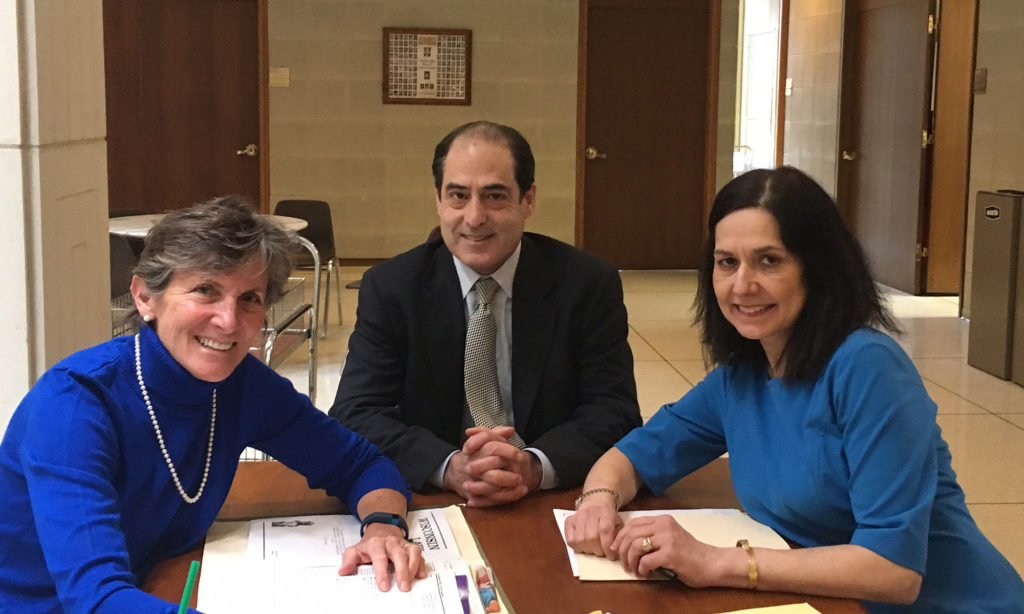The biennial conference of the World Federation of the Right to Die Socities is a marquee event, bringing together 250 delegates from over 100 advocacy organisations from every continent (except Antarctica). They spend two full days of lectures, presentations, testimonies, histories and confabulation. In some countries, speakers present data and the results of the successful passage of their right-to-die laws. Others speak of frustrations of meeting the usual suspects in opposition able to roadblock progress. Often, misnomers are corrected; bogey-men are defanged; facts are checked.
For this delegate, there were several important take-aways.
First and foremost, several represenatives from Canada disected the vitriolic exaggerations made by opponents, which lead some to describe Canada as the slippery slope hell. Nothing could be farther from the truth. Canada does not send their homeless to use MAID as a solution. While one story which gained international currency related how a homeless veteran called a help desk, and was inappropriately referred to MAID, the answer is anyone can apply for MAID; however MAID is only permitted if the criteria of an incurable medical disease causing intolerable suffering is present. Furthermore, while the Canadian Supreme Court in 2015 had proclaimed that laws preventing eligible patients from accessing MAID are unconstitutional as an infringement on basic human right, for the time being, persons suffering from a grievous psychiatric disorder causing intolerable suffering are not eligible. Several MAID doctors discussed the intimate relationship they develop with their patients before prescribing the medicine. Most importantly, the use of MAID in Canada was put into perspective. The uptake in Canada as a whole is 4.1% of all deaths are via MAID. In British Columbia, the number is closer to 10%. And while some will find those numbers alarming, the reality is even in the province with demographics most conducive to accessing MAID like BC, 9 out 10 eligible patients prefer to let nature take its course, which is their right and prerogative. MAID in other words is not swamping the end of life health care in Canada.
The second big lesson learned is that in several countries where advocates hit roadblocks, it is always the same arguments that we confront in the US, with one exception. There are those from a religious orientation who believe only God can make such weighty decisions. That, oddly enough is what has prevented legislation in all of the Scandinavian countries where a strong Lutheran bent is still politically present. There are those in the more aged milieus of the medical community who cannot brook a doctor dosaging for death. However, surprisingly in Europe and Australasia, the disability rights advocates have not manifested any opposition to MAID laws in the BeNeLux countries or in Iberia.
Finally, we learned that in both Ireland and the United Kingdrom, the stars may well be aligned for passage of MAID laws, after several years of false starts.
We were told by a representative of Exit, one of 3 organisations in Switzerland open to "suicide tourism" that they do not wish to be known as such. They are available for people who do not have the privilege in their own country. But the Swiss organisations would much prefer that each country allows its citizens to die according to their wishes and not be obligated to travel to Switzerland to achieve their last wish.
The next conference will be in Tokyo in November, 2026 under the direction of Yoshihiro Kitamura for the Japan Society for Dying with Dignity. In accepting hosting privileges, Kitamurasan asked a pertinent question which he hopes will be answered at the conference: why is there no country in Asia where the Right to Die is recognised?
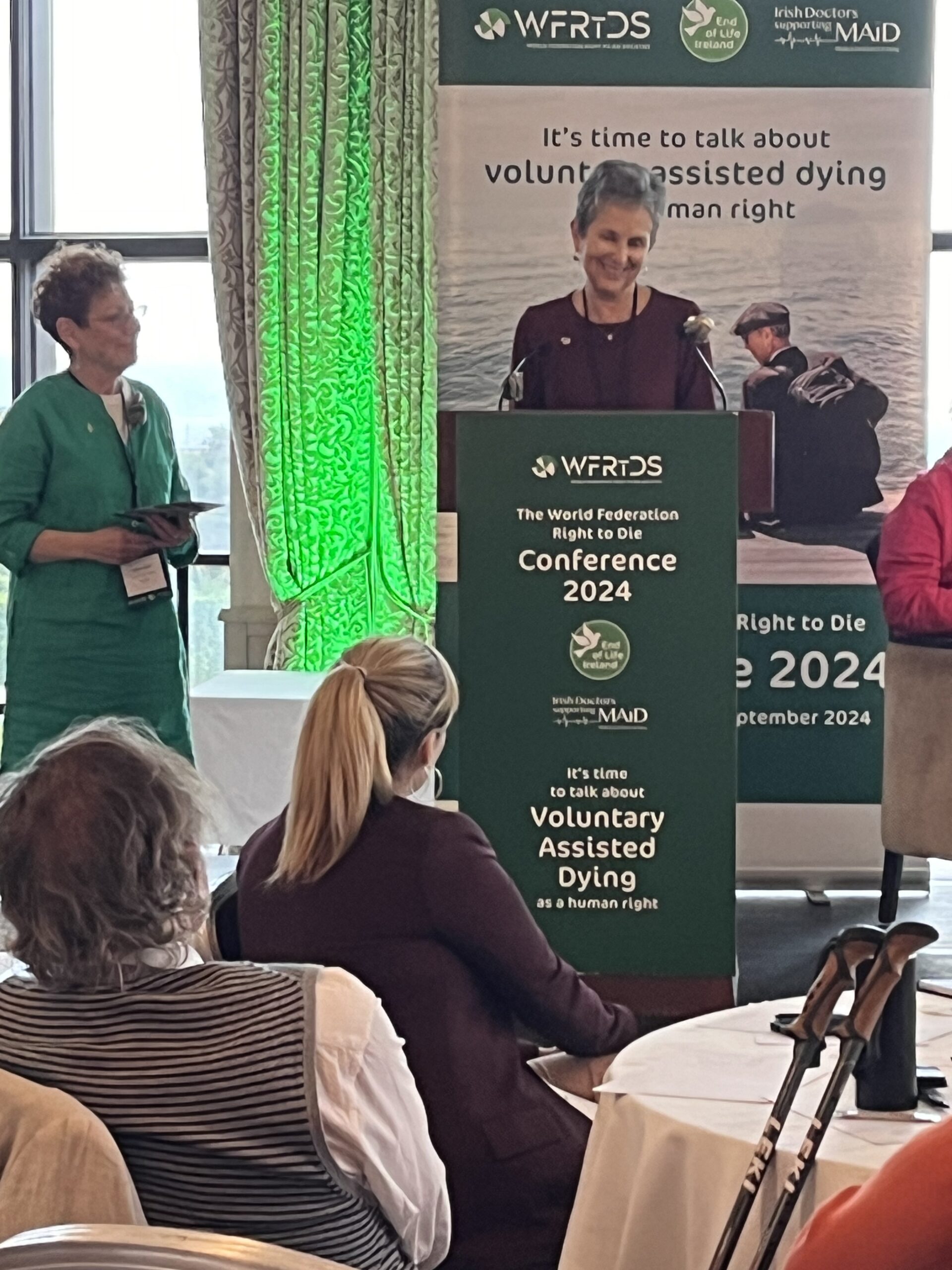
WFRDS President Asuncion Alvarez of Mexico closes the Biennial Conference by thanking Hostess Janie Lazar, President of End of Life Ireland for a successful two days of learning, testimonials, inspirations and strategizing
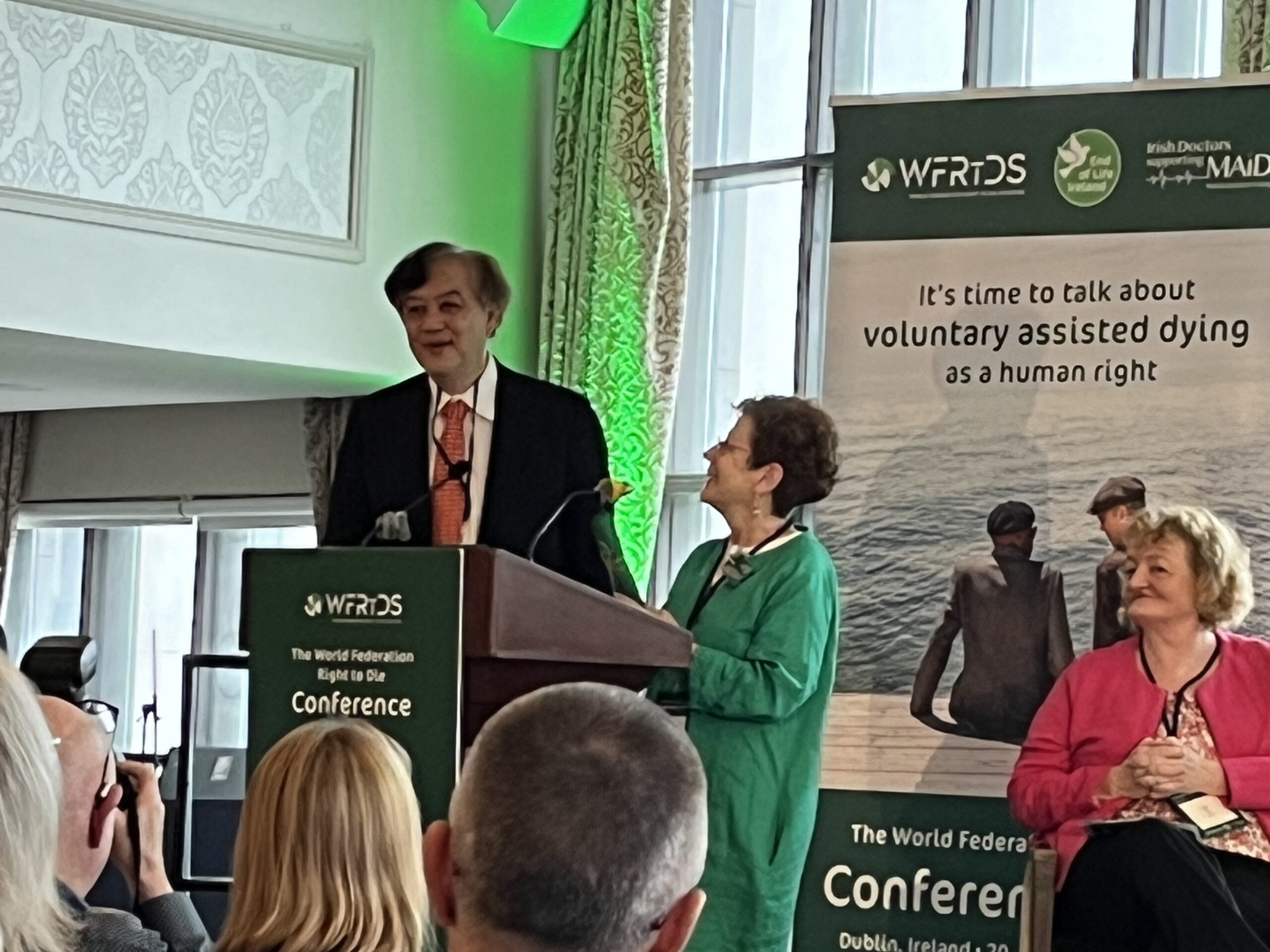
Janie Lazar, President of End of Life Ireland and Hostess of the Biennial Conference of the WFRDS held in Dun Laoghaire, Ireland, congratulates and passes the torch to Yoshihiro Kitamura, Head of the Japan Society for Dying with Dignity, who will be the host for the November, 2026 Biennial Conference in Tokyo
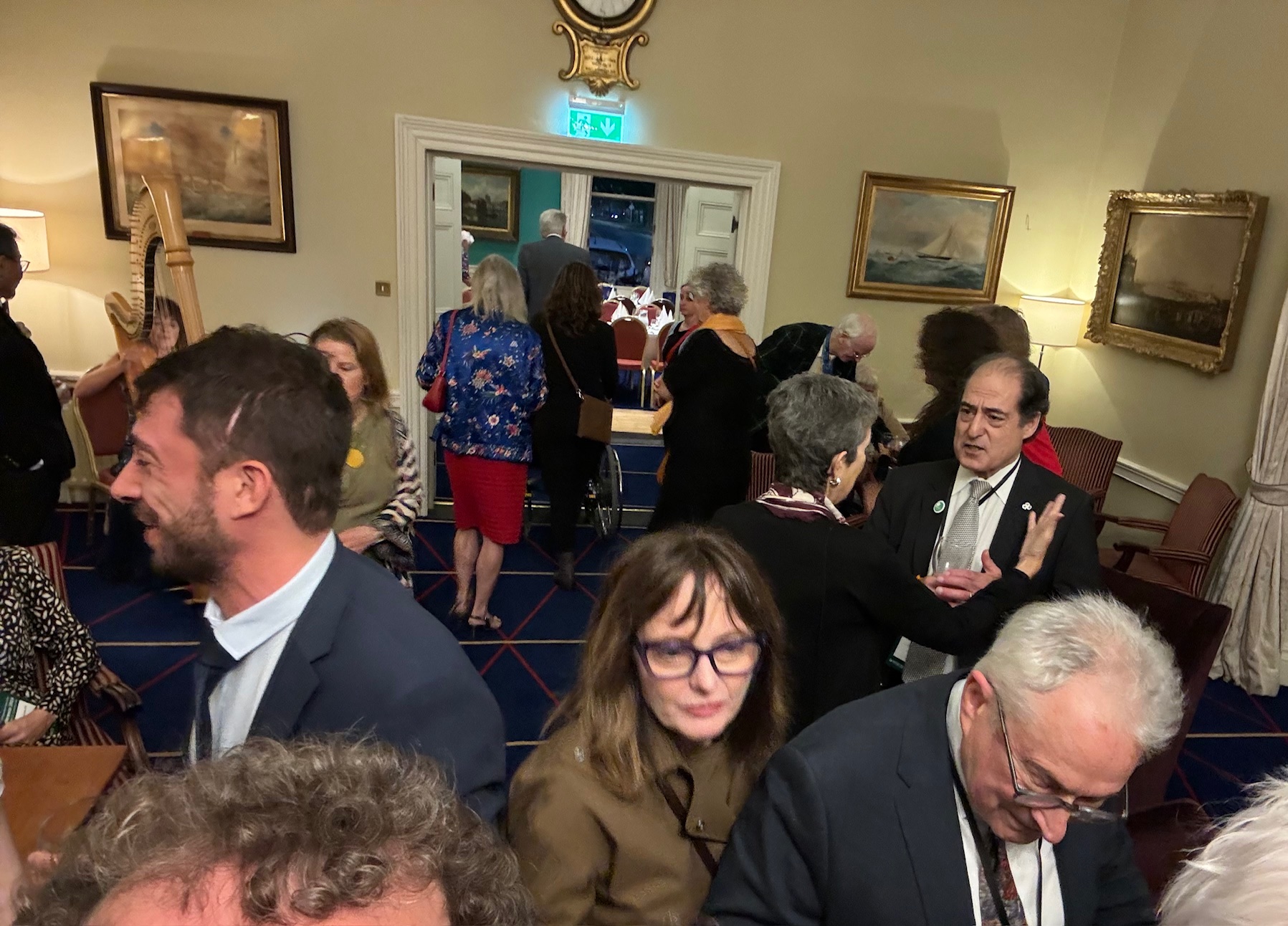
An intense discussion between DRNC Executive Director Ed Tiryakian and WFRDS President Asuncion Alvarez of Mexico expressing dismay at the news that Gov John Carney of Delaware had just vetoed Delaware's Right to Die Law
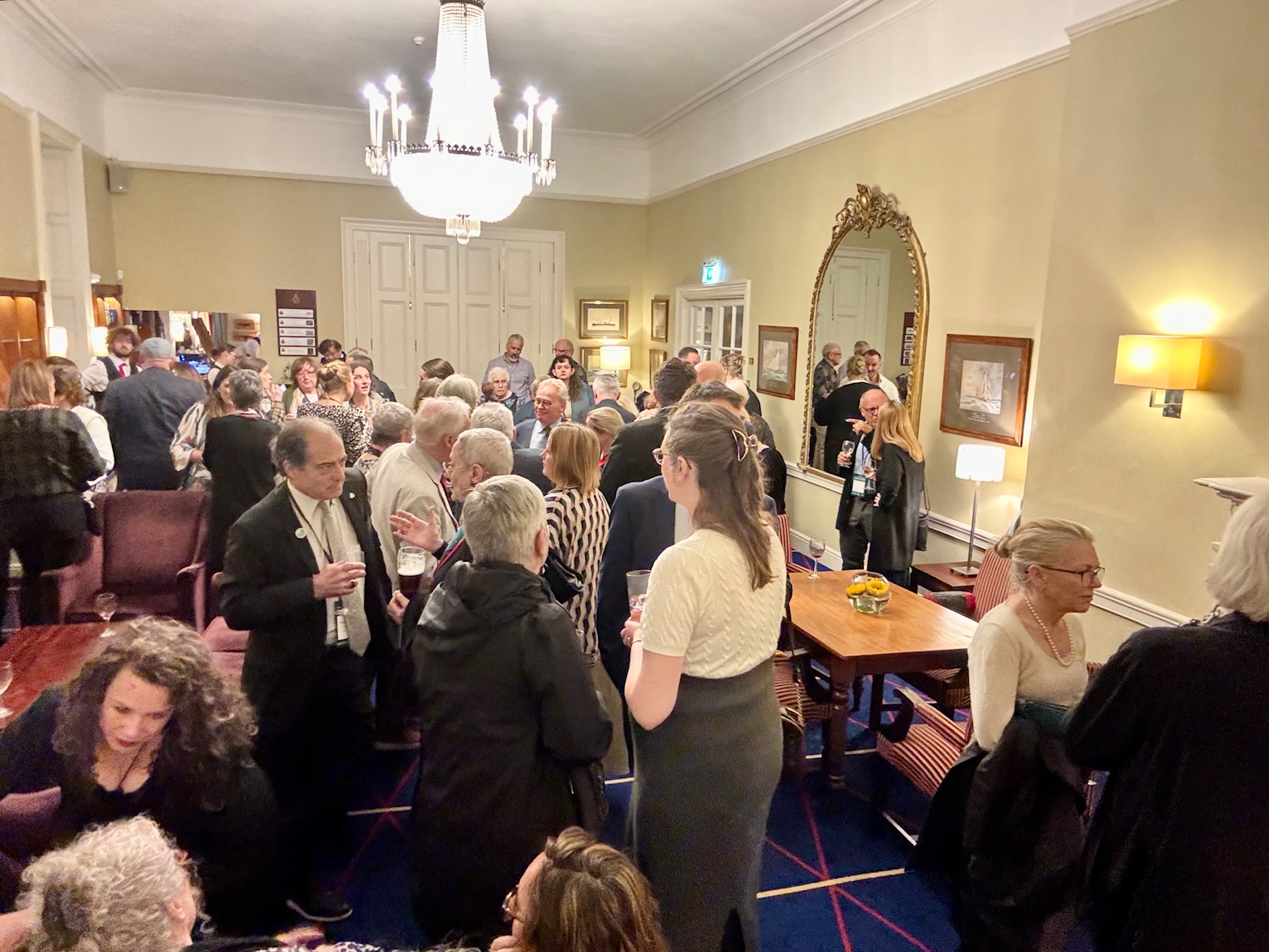
DRNC Executive Director Ed Tiryakian engages with Chantal of France's Le Choix-Citoyens pour une Mort Choisie on progress, or lack thereof in France's Right to Die movement. In the foreground, Sarah Kiskadden-Bechtel, Executive Director of the Completed Life Initiative discusses US efforts with Mary Ewert, Executive Director of Final Exit Network. To the right, Prof Anna Kirah, Head of Norway's Right to Die movement.


